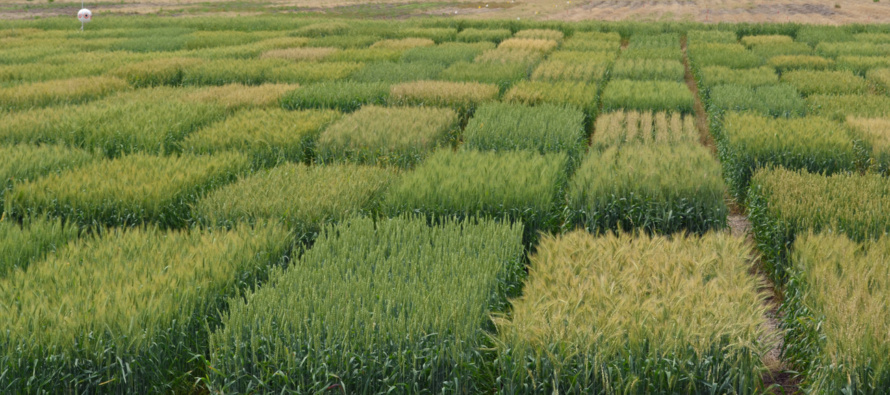2017 MSU Short List of Suggested Wheat Varieties

Related Articles
- Calcium and Magnesium For Mississippi Crops 1
- March 11 Precision Agriculture Workshop 0
- Ground Speed Affects Spray Droplet Deposition 0
Latest Tweets
Mississippi State University annually conducts Variety Trials of public and private wheat and oat varieties: MAFES Wheat and Oat Variety Trials. These variety trials are grown at up to nine locations in cropping regions representing all geographic areas of the state. These trials may be grown on Experiment Stations or grower cooperator’s farms. Variety entry is open for all public or private parties and dependent upon voluntary entry by the respective seed company or owner for performance evaluation.
This publication lists those wheat varieties which have demonstrated superior productivity in the MSU Wheat and Oat Variety Trials and summarizes their characteristics. Adaptability and performance of wheat varieties often varies considerably depending upon climatic differences inherent in different geographical regions of Mississippi and the Mid-South, particularly as latitude ranges from north to south. Thus, variety performance is analyzed and presented independently for the Delta region, north Mississippi and south Mississippi. This independent information should help you better assess wheat varieties and pick those which are suited for your farm.
Mississippi experienced very mild winter temperatures last winter that affected wheat productivity and performance which is apparent in the latest MAFES Wheat and Oat Variety Trials. Winter wheat requires cold weather over an extended time period in order to trigger normal reproductive growth, which includes the development of stems and heads. The generally mild weather and short duration of cool temperatures were not sufficient to fully stimulate growth and development of some wheat varieties grown in the variety trials last season. As a general rule, late-maturing varieties generally have more substantial vernalization requirement than early-maturing varieties. Therefore, those varieties with substantial vernalization requirement struggled to develop and perform last spring, compared to varieties with low vernalization needs.
These unique conditions do not mean you should select a variety based solely upon last year’s performance. If you farm in the southern region of the state where temperatures are normally mild, 2017 results should help identify well-adapted wheat varieties with modest vernalization requirement, which is particularly important if you plant late in the fall. However, varieties with low vernalization requirement and early maturity will likely head out very early, making them especially vulnerable to freezing temperatures late in the spring. For instance, late spring freezes in 2007 and 2008 caused catastrophic wheat damage in both north and south Mississippi. Therefore, evaluating performance over numerous locations and multiple years will help you select better wheat varieties for growing in your region.
2017 MSU Short List of Suggested Wheat Varieties




Let me tell You a sad story ! There are no comments yet, but You can be first one to comment this article.
Write a comment